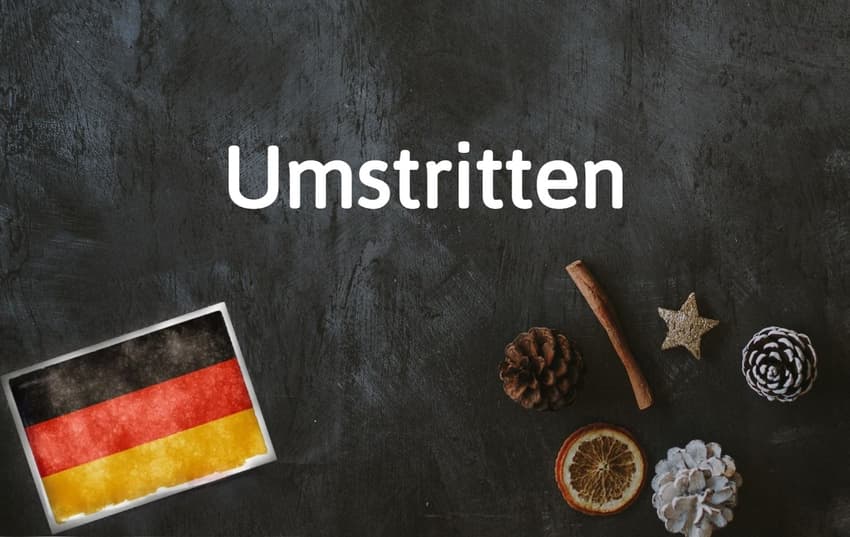German word of the day: Umstritten

Not everyone agrees on everything - and there are some things almost nobody can agree on. If you find yourself dealing with the latter, you may need to make use of this German word.
Why do I need to know umstritten?
Because umstritten is a handy word that can be applied to multiple situations, but is especially useful when chatting about current affairs or the big social issues of our day.
You'll likely come across it while reading articles in German newspapers, or hear your German friends use it while setting the world to rights in the pub.
What does it mean?
Umstritten is best translated as "controversial" or "disputed" in English. As usual in German, you can easily work out - and remember - what it means by breaking it down into smaller components.
The first is the prefix um, which tends to mean "around". Think of German words like umkehren, which means to turn around or reverse, or umarmen, which means to put your arms around someone (or hug them, in other words!).
READ ALSO: German word of the day: Bremsen
The second component is the verb streiten, which means to argue. So something that's umstritten is something that there are lots of arguments around, like a controversial new law, a social debate or a public figure.
Use it like this:
Die Pläne der Regierung waren hoch umstritten.
The government's plans were highly controversial.
Sein Erbe als Fußballtrainer ist immer noch umstritten.
His legacy as football manager is still disputed today.
Comments
See Also
Why do I need to know umstritten?
Because umstritten is a handy word that can be applied to multiple situations, but is especially useful when chatting about current affairs or the big social issues of our day.
You'll likely come across it while reading articles in German newspapers, or hear your German friends use it while setting the world to rights in the pub.
What does it mean?
Umstritten is best translated as "controversial" or "disputed" in English. As usual in German, you can easily work out - and remember - what it means by breaking it down into smaller components.
The first is the prefix um, which tends to mean "around". Think of German words like umkehren, which means to turn around or reverse, or umarmen, which means to put your arms around someone (or hug them, in other words!).
READ ALSO: German word of the day: Bremsen
The second component is the verb streiten, which means to argue. So something that's umstritten is something that there are lots of arguments around, like a controversial new law, a social debate or a public figure.
Use it like this:
Die Pläne der Regierung waren hoch umstritten.
The government's plans were highly controversial.
Sein Erbe als Fußballtrainer ist immer noch umstritten.
His legacy as football manager is still disputed today.
Join the conversation in our comments section below. Share your own views and experience and if you have a question or suggestion for our journalists then email us at [email protected].
Please keep comments civil, constructive and on topic – and make sure to read our terms of use before getting involved.
Please log in here to leave a comment.